Keywords: Welfare Agencies
-
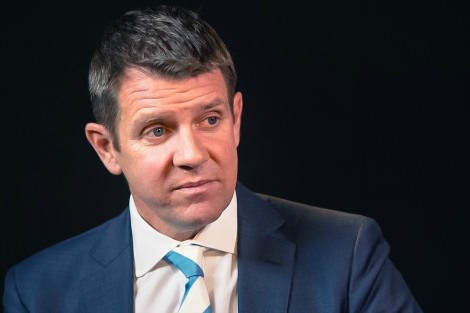
AUSTRALIA
- Tony Smith
- 13 January 2017
4 Comments
If the argument about sacking specialist education officers for NSW prisons holds, then perhaps it should be applied to schools. Sacking all permanent teachers and throwing all lessons across the state open to tender should improve educational outcomes. The absurdity of such a suggestion should be obvious. If the government is serious about improving prison education, it should work with the experienced teachers to make those improvements.
READ MORE 
-
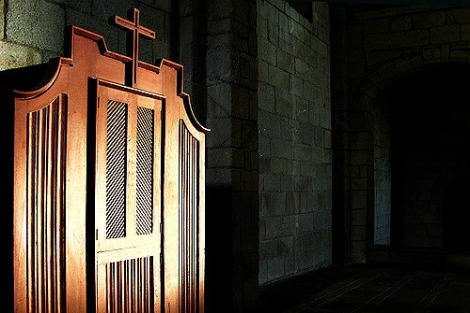
RELIGION
- Frank Brennan
- 05 December 2016
18 Comments
One distinctively Catholic practice is personal confession in which an individual confesses to God their sins and seeks forgiveness in the presence of and at the hands of a priest. Some groups and individuals are proposing to the royal commission that the seal of the confessional no longer be inviolable. I was quoted in The Australian saying, 'If a law is introduced to say that a priest should reveal a confession, I'm one of those priests who will disobey the law.' Being also a lawyer, let me explain.
READ MORE 
-

AUSTRALIA
- Samuel Dariol
- 19 October 2016
9 Comments
A policy that deliberately inflicts harm on one group of people to deter others from coming to Australia is ethically obnoxious. It is now time to bring the people detained offshore to Australia. The Australian Catholic bishops have promised the resources of Catholic organisations to help educate the children, care for the health and meet other needs of the people who are detained. When a significant sector of the community is ready to help care for vulnerable people, it is proper to allow them to do so.
READ MORE 
-

RELIGION
- Frank Brennan
- 23 September 2016
18 Comments
'No good will be served by a royal commission auspiced by the state telling a Church how it judges or complies with its theological doctrines and distinctive moral teachings. By all means, set universal standards of practice expected of all institutions dealing with children, but do not trespass on the holy ground of religious belief and practice.' Fr Frank Brennan SJ addresses the Freedom for Faith Conference in Melbourne, 23 September 2016.
READ MORE
-

AUSTRALIA
- Frank Brennan
- 30 May 2016
5 Comments
'Being in the middle of an election campaign, I will not be making any partisan party political points. However being here in the bellwether seat of Eden-Monaro, I will conclude with a critique of both major political parties, and with one piece of political advice for citizens of goodwill seeking a national asylum policy more in harmony with the ideals set out by our bishops in their social justice statement.' Yass Catholic Parish Potluck Dinner, 28 May 2016
READ MORE
-
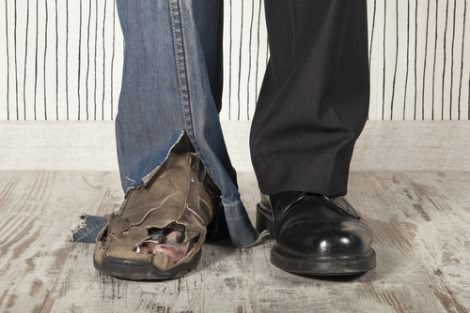
AUSTRALIA
- Marcelle Mogg
- 05 May 2016
18 Comments
Even the International Monetary Fund recognises that the best way to grow an economy is to reduce the divide between rich and poor, ensuring that all people have a chance to participate in the social and economic life of a country. The Coalition government remains resolutely opposed to this growing body of evidence, continuing to rely on economic structures that entrench disadvantage, then blame the poor for their fate. The Budget provides tax cuts to the rich and service cuts to the rest.
READ MORE 
-

AUSTRALIA
- Andrew Hamilton
- 23 October 2015
4 Comments
A particular issue in Australia is the age of criminal responsibility, which varies in different states between ten and 12. Research into brain development suggests that people cannot fully take responsibility for their actions until they are 15 years old. Responsible policy must respect the human development of the child and ensure that the response to their wrongdoing takes into account their age and does not place them in processes they can neither understand nor properly participate in.
READ MORE 
-

- Frank Brennan
- 18 September 2015
Pope Francis's concerns are not narrowly dogmatic or pedagogical but universally pastoral. He knows that millions of people, including erstwhile Catholics, are now suspicious of or not helped by notions of tradition, authority, ritual and community when it comes to their own spiritual growth which is now more individual and eclectic. He wants to step beyond the Church's perceived lack of authenticity and its moral focus on individual matters, more often than not, sexual. He thinks the world is in a mess particularly with the state of the planet — climate change, loss of biodiversity and water shortages, but also with the oppression of the poor whose life basics are not assured by the operation of the free market, and with the clutter and violence of lives which are cheated the opportunity for interior peace. He is going to great pains to demystify his office. He wants all people of good will to emulate him and to be both joyful and troubled as they wrestle with the probl
READ MORE
-
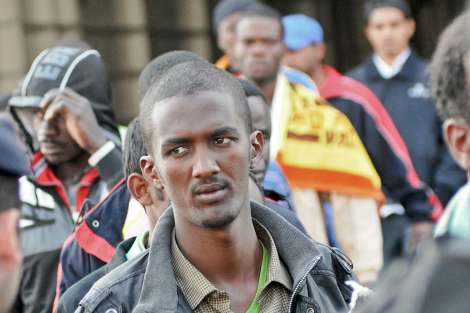
AUSTRALIA
- Kerry Murphy
- 11 September 2015
2 Comments
Some refugee advocates will almost deify the refugee, and take away their humanity by making it seem that the refugee is always right. In reality refugees make bad decisions, tell lies and exaggerate, just like the rest of us. But that does not mean they're contemptible. Recognising their humanity makes it easier to feel empathy with them, and less likely we will fear them.
READ MORE 
-

- Frank Brennan
- 01 September 2015
1 Comment
If you want to form government in Australia and if you want to lead the Australian people to be more generous, making more places available for refugees to resettle permanently in Australia, you first have to stop the boats. If you want to restore some equity to the means of choosing only some tens of thousands of refugees per annum for permanent residence in Australia from the tens of millions of people displaced in the world, you need to secure the borders. The untrendy truth is that not all asylum seekers have the right to enter Australia but that those who are in direct flight from persecution whether that be in Sri Lanka or Indonesia do, and that it is possible fairly readily (and even on the high seas) to draw a distinction between those in direct flight and those engaged in secondary movement understandably dissatisfied with the level of protection and the transparency of processing in transit countries such as Malaysia and Indonesia. The popular evil is that political
READ MORE
-

- Shannon and Kateena
- 12 June 2015
1 Comment
'In chapter 12 "Respecting Autonomy and Protecting the Vulnerability of the Dying", Frank quoted my grandmother ... "Well there is not much to say about euthanasia is there? Just don't kill people and look after them while they are dying. What more can you say?" Well Grandma, I am not certain that I share your view. Just as Pope Francis did not know all the answers at age 36 years, neither do I.' Frank Brennan's nieces Shannon and Kateena help launch his new book Amplifying That Still, Small Voice.
READ MORE
-
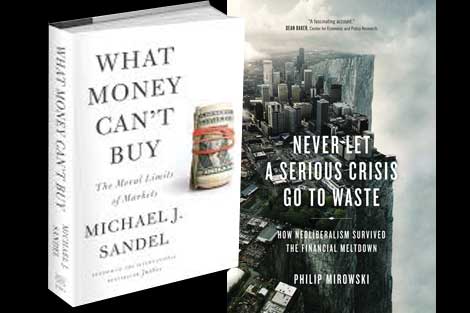
AUSTRALIA
Neoliberal economics underlies the recent Federal Budget and the major parties’ welfare policies. It proclaims the end of the age of entitlement and speaks of small government, as it embraces the privatisation of 'service delivery'. Faith based organisations are involved as agencies of the government, often forced to impose punitive measures rather than the promise of the 'carrot' that is their purpose.
READ MORE 